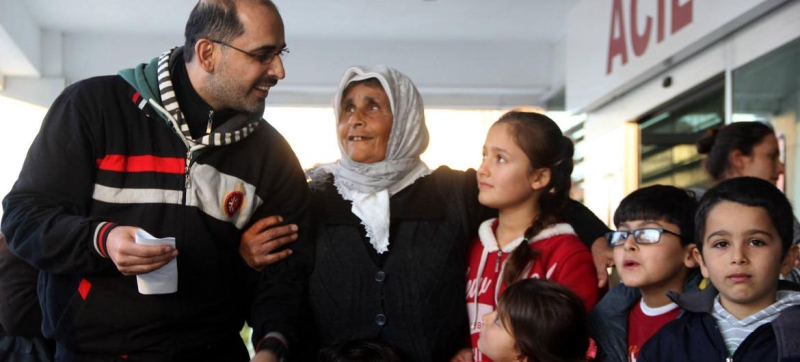- Overnight rain floods Chattogram, causes traffic chaos |
- Khagrachhari violence: 3 cases against 1, 000 unknown people |
- Durga Puja ends today thru immersion of idol |
- Bay Deep depression likely to cross Odisha by Thursday night |
- Human Rights Groups Urged to Unite Against Racism |
Syria Prison Survivor Seeks Justice for the Missing

When the gates of Syria’s notorious Sednaya prison opened soon after the fall of the Assad regime last December, graffiti scrawled on the walls offered a chilling glimpse into what was widely known as the “human slaughterhouse.” One inscription read: “First day, severe beating.”
Today, with support from the UN, former detainee and human rights defender Riyad Avlar is working to uncover the fate of those who never made it out and to seek justice for the disappeared.
He recalls a grieving mother’s response when told her son had died in detention: “I accept this, but I have not lost hope. One day, my son will walk in and meet you here.” For Riyad, her words embody the resilience of families still searching for truth.
Riyad, imprisoned for more than two decades after being arrested in 1996 at the age of 19, continued his fight for justice after his release in 2017. He co-founded the Association of Detainees and the Missing of Sednaya Prison (ADMSP), which documents testimonies, identifies perpetrators, and supports families of the disappeared.
The association maintains two databases: one recording testimonies from survivors of Sednaya and other detention centres, and another collecting information from families seeking answers.
Riyad’s ordeal began when he left his village in Turkey to study in Syria. Arrested at 19, he was held incommunicado for 15 years and endured torture, solitary confinement, and near-total isolation. His family only learned he was alive thanks to a friend’s mother.
Denied a fair trial and charged with fabricated accusations, Riyad lived in constant fear of execution. These experiences now fuel his determination to ensure survivors’ voices are central to accountability efforts.
Beyond the suffering of detainees, families endure years of anguish. Mothers wait without answers, while wives and children face stigma, harassment, and exile. “Every family member suffers differently,” Riyad explains. “But what unites them is the right to know.”
Riyad now serves on the Advisory Board of the Independent Institution on Missing Persons in Syria, established in 2023 by the UN General Assembly. The body is tasked with clarifying the fate of the missing, supporting families, and advancing accountability.
According to the Syrian Network for Human Rights, at least 181,312 people remain detained or forcibly disappeared, including 5,332 children and 9,201 women.
“To survivors, I say we must demand justice—not revenge, but accountability and reparations. We are alive, and that is a responsibility,” Riyad declares.
Reflecting on his release after 20 years, he recalls being shocked by how much the world had changed—from old push-button phones to modern touchscreens, from underdeveloped villages to paved roads and cars. “It felt like being frozen in time and then suddenly released into a science fiction movie,” he says.
For Riyad, truth and transitional justice are essential for Syria’s future. Families of the missing, he insists, must never be left without answers, and survivors must play a central role in shaping what comes next.

